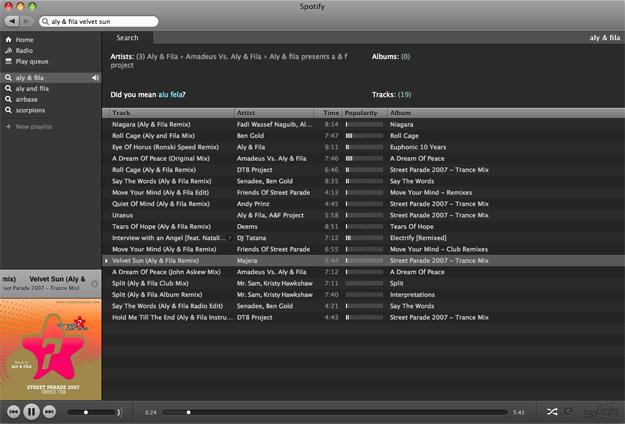
The music industry has been forced to reinvent itself thanks to the Internet. Ever since Napster first appeared on the scene, consumers have been finding ways to get their music for free, at the detriment of recording labels and artists. One answer to this issue has been the subscription music model: Services like Spotify, Last.fm, MOG, and Rdio are compromises between a market that is searching for profit models and customers who simply won’t spend what they used to.
How well this new business model works is up for debate. Indie artists say they’re getting ripped off by such services, and some established musicians won’t allow their music to be sold this way. Selling access to music rather than selling the commodity is a very new idea, and one with its drawbacks and benefits. While in the case of most services consumers don’t actually have ownership over this data, it has largely been linked to cutting down on piracy.
Still, there are always ways around this. Via stream ripping, users are still able to pirate music, even within what are supposed to be safe harbors for artists.
And Spotify is one of the services to fall victim to the tool. The site is still relatively new to the U.S., but sites like SpotifyRipper and dozens like it give users a loophole in the system so they can get their music for free. Using applications like ReplayMusic, they can record from the service to access the music offline.
“This is a grey area as the concept has not been tested in court,” according to the SpotifyRip website. “However it’s legal to record from Internet radio and it could be said that Spotify is a type of Internet radio.” Still, the site admits this is against Spotify’s user policy. There are such services available for a variety of applications, like MOG and Pandora. Developers are actively making and selling software to help consumers (of every tech skill level) grab and keep their music.
“Stream ripping is nothing new and there are a number of cheap and free software tools available online to enable this activity,” says Mark Mulligan of Music Industry Blog. “It has been a risk of streaming services for years. The reality is that stream ripping will happen, but I do not consider it to be a major risk.” He says that while many services are user-friendly, all metadata is stripped from the files, so the process itself can be time consuming.
“That is not to say this isn’t a problem for Spotify, it is,” he says. “But it is much less of a problem than issues such as hitting profitability, creating long-term financial viability, [and] competing with other streaming services.”
Music industry analyst Kevin Erickson also says that while Spotify has legally covered its bases with its terms of service, stream ripping can still hurt it. “If SpotifyRip becomes popular, then the press will not be favorable. Spotify claims to have stopped piracy (or reduced it) in some markets, so that claim will go out the window if SpotifyRip makes inroads.”
While it’s seemingly not a major issue, it could continue to give streaming services an uphill battle with record labels. Google Music has had trouble getting all four major companies on board with its application, and Spotify’s launch was delayed because of contract negotiations. Back in 2007, the RIAA said stream ripping wasn’t a threat to the industry, but that it hoped technology to prevent it would be adopted to circumvent the issue altogether. Of course music consumption has undergone vast changes since 2007, and it’s looking like the powers that be didn’t fulfill the RIAA’s plan, and the notion the industry would bypass stream ripping entirely was in vain.
There seem to be endless hurdles on the road to an artist-profitable, consumer-centric music market. Stream ripping has been happening for years without much concern, or mainstream users being aware of it, but the increasing popularity of the subscription platform could seriously change that. If stream ripping were to become a more popular activity, new services could have trouble getting off the ground.
Spotify could ultimately serve as a cautionary tale for this: “[It] could begin to receive pressure from the labels to close the tech gap in the platform to counteract the SpotifyRip technology,” Erickson notes. If it becomes a big enough problem, labels will start to turn toward services that have prevented or are taking steps to prevent stream ripping.
It also means that consumers have a loophole at their fingers. Authorities have known about stream ripping but either thought that technology would eventually disable it or that the music model wouldn’t lend itself to it. But the opposite has happened, and that means that yet again there’s a small window for music lovers who want some ownership over their digital content.
Editors' Recommendations
- Tidal vs. Spotify: Which music streaming service has the features you need?
- Apple Music still trails Spotify as growth continued for music streaming in 2019
- Google has 15 million subscribers for its music-streaming services


